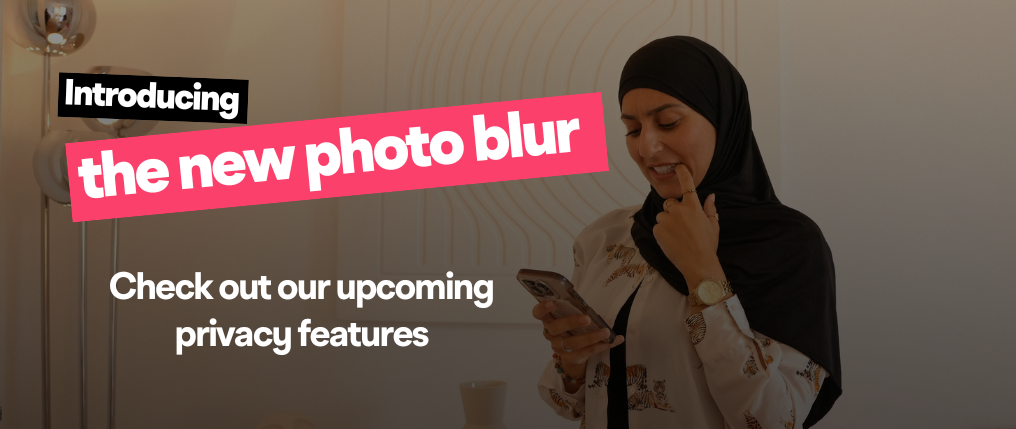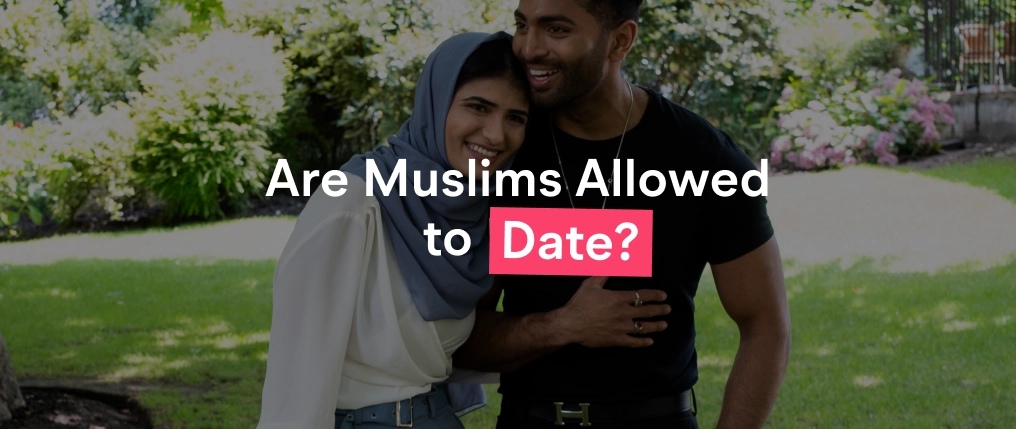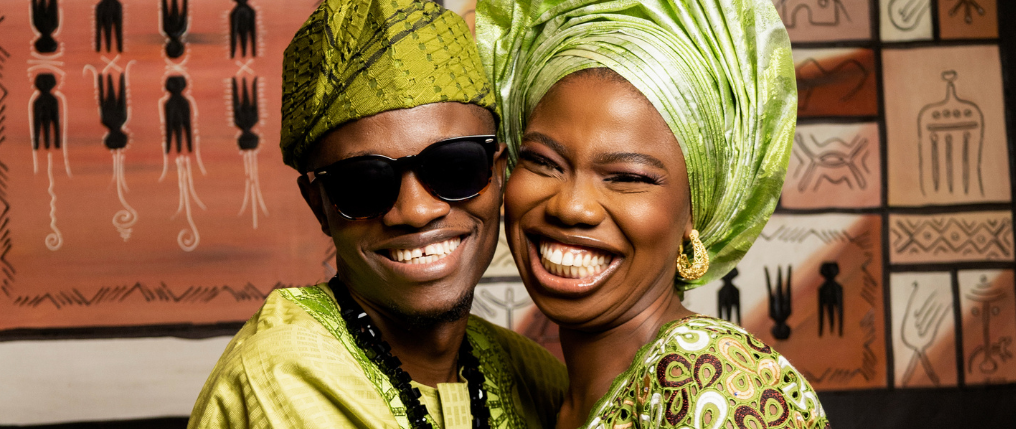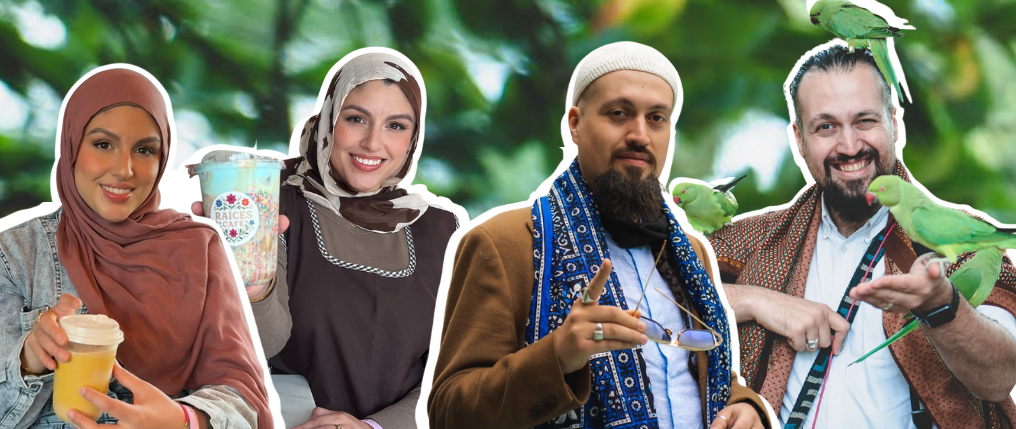
Are Muslims Allowed to Date?
March 1, 2024

Dating within the Muslim community is a topic often shrouded in misconceptions and varying interpretations of Islamic teachings. While traditional values and cultural norms play a significant role, it’s essential to delve into the religious aspects to answer the fundamental question: Are Muslims allowed to date?


Looking for your soulmate?
You won’t find your soulmate on this blog post but you might find them on Muzz - the world’s biggest Muslim dating and marriage app.
In this post, we’ll explore the significance of fostering halal relationships and the pivotal role intentions (Niyyah) play in the eyes of Islam. We’ll take a closer look at the variability in cultural practices, acknowledging that the dating landscape is as diverse as the communities practising it.
Table of contents
The Controversial Term: ‘Dating’
The Significance of Halal Relationships
The Role of Intentions (Niyyah) in Relationships
What are the Rules of Dating in Islam?
Exploring the Variability in Cultural Practices
Seeking Guidance from Islamic Scholars
The Controversial Term: ‘Dating’

Within Muslim communities, there exists a cautious approach toward the term ‘dating,’ often replaced with alternative language that reflects the values and intentions of Islamic relationships. Terms such as ‘courting,’ ‘purposeful dating with marriage intentions,’ or ‘halal interactions’ are usually favored over the term ‘dating.’
Related content: Let’s talk about dating
This linguistic shift seeks to redefine the narrative around relationships, acknowledging the importance of purposeful connections while upholding the principles of Islam. By choosing language that incorporates ‘dating’ within the context of intentionality, individuals can navigate the complexities of relationship-building, maintaining a commitment to modesty, respect, and the ultimate goal of a union grounded in faith and shared values.
Are Muslims Allowed to Date?

Muslims are allowed to date as long as they do it in a halal way and the end goal is marriage. However, dating known in the Western world is haram in Islam. Muslims are not permitted to engage in relationships solely for pleasure.
Is Dating Haram in Islam?

Dating is haram in Islam if we’re talking about the Western way of dating. Halal dating is allowed although the debate continues among the community members. However, within an Islamic framework, dating with the clear intention of marriage is not only permissible but also encouraged. The focus shifts from casual or recreational dating to purposeful and respectful interactions that lead to a committed marital relationship, aligning with Islamic principles and values.
Related content: Is Dating Haram? Here’s What You Need to Know
The Significance of Halal Relationships

Islamic teachings emphasize the concept of ‘halal,’ meaning permissible or lawful. In the context of relationships, adhering to halal principles ensures that interactions align with Islamic values.
Related content: The Struggles of Halal Dating and How to Surpass Them
This involves respecting boundaries, maintaining modesty, and seeking relationships with the intention of marriage. It is important to note that Islam prohibits any kind of physical contact (i.e hand holding, hugging, kissing, etc.) pre-Nikkah/Islamic marriage.
Related content: How To Have A Successful (And Halal!) First Date
The Role of Intentions (Niyyah) in Relationships

Intentions matter in Islam. Getting to know someone with the sincere intention of finding a life partner and fostering a relationship grounded in mutual respect is encouraged. It aligns with the broader Islamic principle of Niyyah, emphasizing pure and sincere intentions in all aspects of life.
Understanding the role of Niyyah in relationships within the Islamic framework extends beyond mere formality. It transforms the process of getting to know someone into a sacred journey, infused with purpose and directed by the sincere desire to establish a relationship that aligns with Islamic values.
This intentional approach, rooted in Niyyah, not only reflects the depth of Islamic teachings but also lays the foundation for relationships that transcend the ordinary, fostering connections that are genuine, respectful, and grounded in the principles of Islam.
What are the Rules of Dating in Islam?

The rules of dating in Islam are guidelines that govern how Muslims approach dating and relationships. Some of the key Muslim dating rules include no physical contact, no sex talk, no sex before marriage, taking things slow, and dating with a chaperone.
Related content: Muslim Dating Rules: What You Need to Know Before You Start Dating
Exploring the Variability in Cultural Practices

Cultural Diversity and Dating Practices
Muslim communities worldwide exhibit rich cultural diversity, leading to variations in courtship practices. While some cultures may encourage traditional arranged marriages, others permit a degree of courtship within the boundaries of Islamic guidelines. Understanding these cultural nuances is crucial in addressing the question of dating within the Muslim community.
This diversity is a testament to the dynamic ways in which Islamic principles intersect with cultural traditions. Across the globe, cultural variations shape the approach to relationships within the Muslim community. In some cultures, there’s an embrace of traditional arranged marriages, a practice steeped in centuries-old customs.
Conversely, other cultures may allow for a more flexible form of courtship, adapting to contemporary norms while still adhering to the guidelines set by Islam. Acknowledging these cultural nuances becomes essential in navigating the multifaceted landscape of dating within the Muslim community, emphasizing the importance of a holistic understanding that embraces and respects the diverse practices that coexist under the umbrella of Islam.
The Influence of Local Customs on Muslim Dating
Local customs often shape the way Muslim individuals approach dating. In some regions, families actively play a role in matchmaking, ensuring compatibility and adherence to Islamic principles. Exploring the impact of these customs provides insights into the diverse approaches to dating within the Muslim world.
Navigating Modern Challenges

Addressing Modern Dating Challenges
In the current era, Muslims encounter distinctive challenges in the realm of dating. The intricacies of juggling cultural expectations, religious principles, and the dynamics of modern relationships present a complex landscape. Addressing these challenges openly is crucial, and seeking guidance from Islamic scholars and community leaders is essential.
The rise of technology, social media, and globalization introduces new dimensions that demand thoughtful consideration. Openly addressing these challenges becomes paramount to fostering a community that adapts to the changing times while remaining firmly anchored in Islamic values.
As Muslims grapple with the demands of a rapidly changing world, the necessity for guidance from Islamic scholars and community leaders becomes increasingly vital. These challenges extend beyond individual experiences, impacting the broader Muslim community.
Embracing an open dialogue that incorporates the perspectives of scholars and leaders ensures a collective and informed approach to modern dating challenges. Balancing tradition with the realities of contemporary life requires a nuanced understanding—one that appreciates the complexities and nuances of the Muslim experience in the modern dating landscape.
The Role of Technology in Muslim Dating
In the ever-evolving landscape of Muslim relationships, the intersection of tradition and modernity is seamlessly facilitated by technological advancements, particularly through platforms like Muzz. In response to the question often pondered by many within the Muslim community – “Are Muslims allowed to date?” – Muzz stands as a testament to the compatibility of modern tools with Islamic principles.
In a world where the quest for love is no longer confined to geographical boundaries, Muslim dating apps have become essential catalysts for forging meaningful connections. Muzz, in particular, emerges as a beacon of hope for Muslims navigating the nuanced realm of halal relationships. By embracing technology, Muzz addresses the contemporary needs of Muslims while upholding the values ingrained in Islamic teachings.
Related content: These 4 Features Are The Future Of Muslim Dating And Marriage
The user-friendly interface of Muzz provides a secure space for Muslims to explore potential matches with the intention of marriage. It seamlessly integrates the essence of tradition by adhering to Islamic principles while leveraging modern functionalities to enhance user experience. Through comprehensive profiles, detailed preferences, and advanced matching algorithms, Muzz aligns with the values of modesty and sincerity, fostering an environment conducive to meaningful connections.
The app’s commitment to halal interactions is evident in its features, which include guided communication and supervised interaction, ensuring that users engage in respectful and purposeful conversations.
Seeking Guidance from Islamic Scholars

Consulting Islamic Scholars on Dating Matters
For those seeking clarity on dating within the Islamic framework, consulting knowledgeable scholars is pivotal. Islamic scholars provide guidance rooted in Quranic teachings and Hadith, offering a comprehensive understanding of what is permissible and what is not in the realm of relationships.
The question “Are Muslims allowed to date” necessitates more than a simple answer; it requires the nuanced understanding and wisdom rooted in Quranic teachings and Hadith that scholars uniquely provide.
Why is consulting scholars crucial? It’s about weaving the fabric of your relationship journey with threads of authenticity, respect, and adherence to Islamic principles. Scholars, deeply steeped in the rich tapestry of Islamic knowledge, offer more than just answers; they provide insights that empower users to make informed decisions aligned with their faith.
The Importance of Open Dialogue in the Muslim Community
Fostering an environment of open dialogue is paramount within the Muslim community, particularly when addressing the often-contemplated question – “Are Muslims allowed to date?”. This ongoing conversation is not only essential for dispelling misconceptions but also for nurturing a community that respects diverse perspectives while staying rooted in Islamic principles.
The significance of open dialogue is deeply ingrained in Islamic teachings, emphasizing the value of respectful discourse and collective wisdom. Platforms like Muzz play a pivotal role in encouraging and facilitating these discussions, providing a virtual space where community members can engage in insightful conversations about relationships within the framework of Islam.
Conclusion
In conclusion, the question “Are Muslims allowed to date” is nuanced and multifaceted. While the core principles of halal relationships remain constant, cultural practices, modern challenges, and individual interpretations contribute to the diversity of dating approaches within the Muslim community.
As the Muslim community embarks on this journey, it is essential to uphold the values of modesty, sincerity, and respect—values that lie at the very core of Islamic teachings on courtship. These virtues serve as guiding principles, ensuring that relationships are cultivated with a profound respect for tradition while acknowledging the demands of contemporary life.

